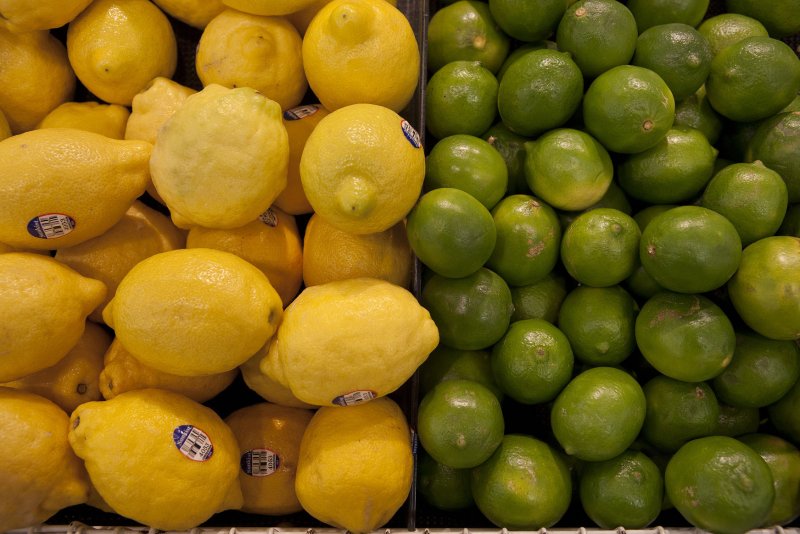New research could pave the way for sweeter citrus varieties. Photo by UPI/Gary C. Caskey |
License Photo
Feb. 27 (UPI) -- Using gene expression experiments, scientists have identified the genes responsible for giving citrus fruits their sour taste.
Not all citrus fruits are sour, of course. Many feature a sweeter flavor profile. Interestingly, all citrus fruits feature roughly the same amount of sugar. Sour citrus fruits simply host larger concentrations of hydrogen.
Hydrogen ions lower the pH levels in citrus pulp, boosting acidity. When consumed, the hydrogen-rich pulp activates acid-sensitive receptor cells on the tongue, producing a tangy, sour taste. Sugar takes a backseat.
Until now, scientists couldn't figure out why some citrus fruits produce more hydrogen ions. To find out, researchers turned their attention to the Faris variety of lemon tree, which produces both sweet and sour lemons. The tree's sweet lemons feature white flowers, while the sour lemons feature purple-tinged flowers.
An earlier study showed increasing acidity in petunias causes the plant to increase the purple pigmentation of its flower petals. The same study identified two genes, CitPH1 and CitPH5, that control acidity in petunias.
According to the new research, CitPH1 and CitPH5 genes play similar roles inside citrus fruits. When expressed, the genes produce transporter proteins that synthesize hydrogen ions, boosting acidity inside juice cells.
When researchers sequenced the juice cell genome of 20 different citrus varieties, they found sweet varieties had down-regulated CitPH1 and CitPH5 expression levels several times during their evolutionary history. The analysis also showed several sweet variety feature mutations that suppress CitPH1 and CitPH5 expression.
"By understanding the mechanism acidification of fruit cells, we can now look for related genes that might reduce the expression of CitPH1 and CitPH5 just enough to engineer or select for new, sweeter varieties," Mikeal Roose, plant scientist at the University of California, Riverside, said in a news release.
Roose and his colleagues published their findings this week in the journal Nature Communications.















